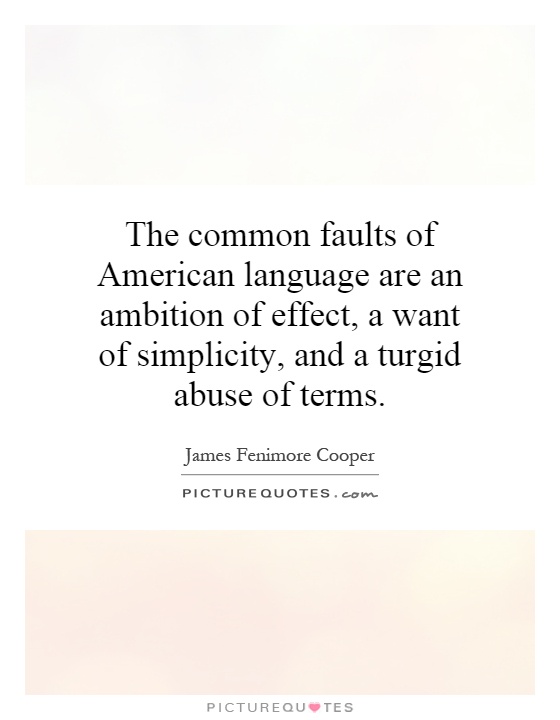The common faults of American language are an ambition of effect, a want of simplicity, and a turgid abuse of terms

The common faults of American language are an ambition of effect, a want of simplicity, and a turgid abuse of terms
James Fenimore Cooper, a prominent American writer of the 19th century, is often criticized for his use of language that embodies the common faults of American writing at the time. These faults include an ambition of effect, a want of simplicity, and a turgid abuse of terms. Cooper's works, such as "The Last of the Mohicans" and "The Deerslayer," are known for their grandiose language and complex vocabulary, which can be seen as a reflection of these common faults.One of the most notable faults in Cooper's writing is his ambition of effect. Cooper often employs elaborate descriptions and dramatic language in an attempt to create a sense of grandeur and importance in his works. This can be seen in his detailed descriptions of the American wilderness and his heroic characters, which are often portrayed in a larger-than-life manner. While this ambition of effect can be effective in creating a sense of drama and excitement, it can also come across as excessive and overwrought, detracting from the overall impact of the work.
Another common fault in Cooper's writing is a want of simplicity. Cooper's prose is often convoluted and difficult to follow, with long, complex sentences and a tendency towards verbosity. This lack of simplicity can make his works challenging for modern readers to engage with, as they may struggle to decipher the meaning behind his dense and intricate language. Additionally, this lack of simplicity can also detract from the clarity and coherence of Cooper's writing, making it harder for readers to fully grasp the themes and messages he is trying to convey.
Cooper is also guilty of a turgid abuse of terms in his writing. Cooper's works are filled with archaic language, obscure vocabulary, and convoluted syntax, which can make his writing feel bloated and pretentious. This abuse of terms can be seen as a reflection of Cooper's desire to impress his readers with his erudition and sophistication, but it can also alienate readers who may find his language inaccessible and off-putting.












 Friendship Quotes
Friendship Quotes Love Quotes
Love Quotes Life Quotes
Life Quotes Funny Quotes
Funny Quotes Motivational Quotes
Motivational Quotes Inspirational Quotes
Inspirational Quotes